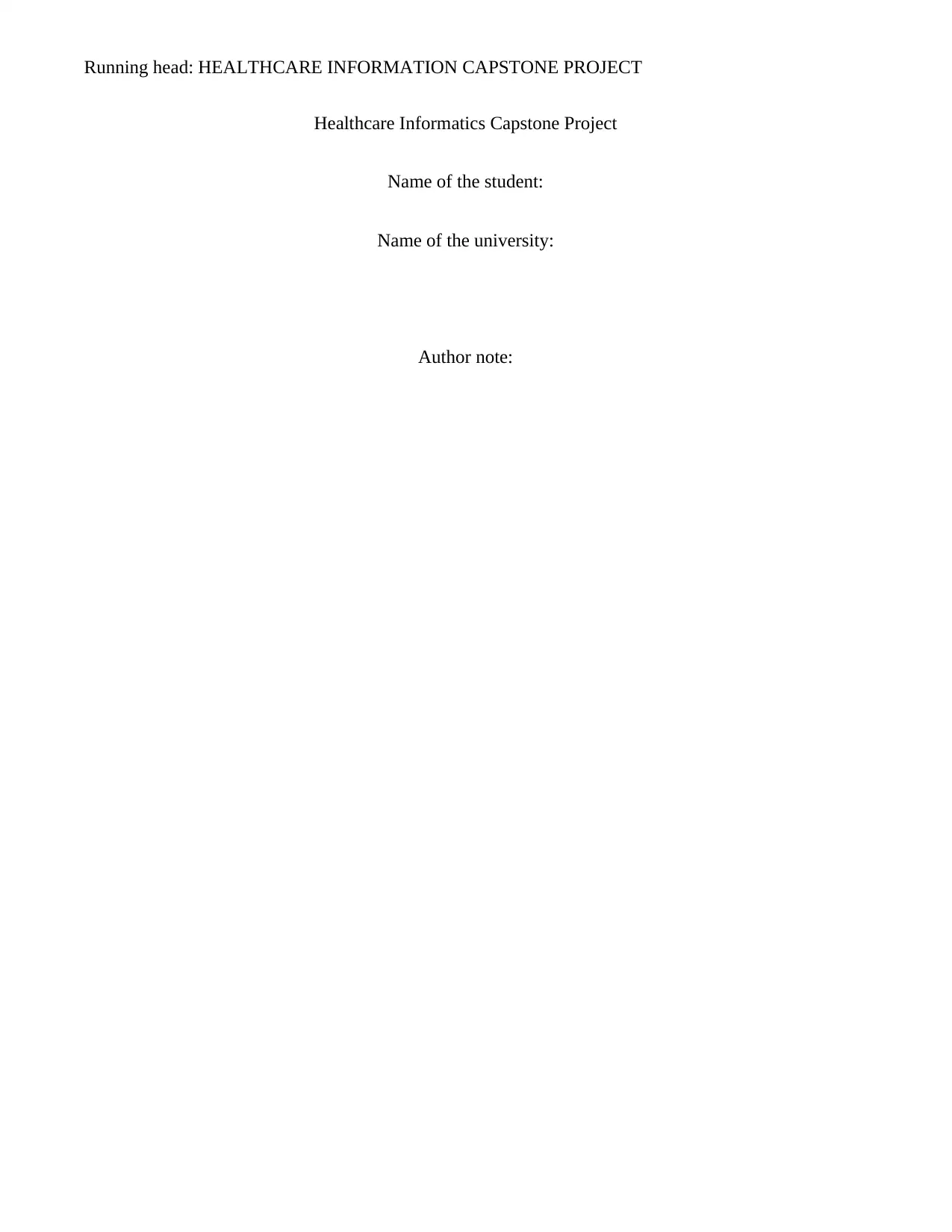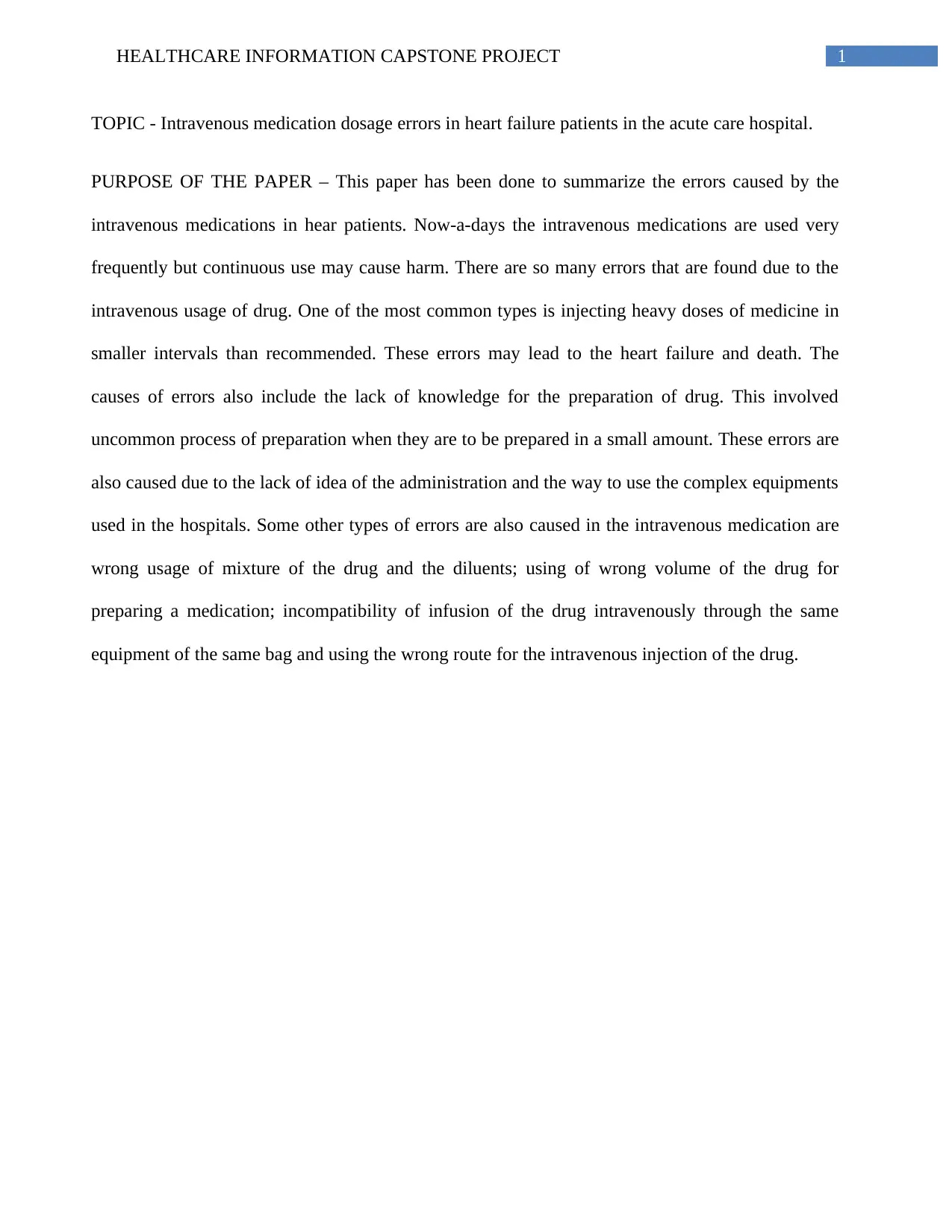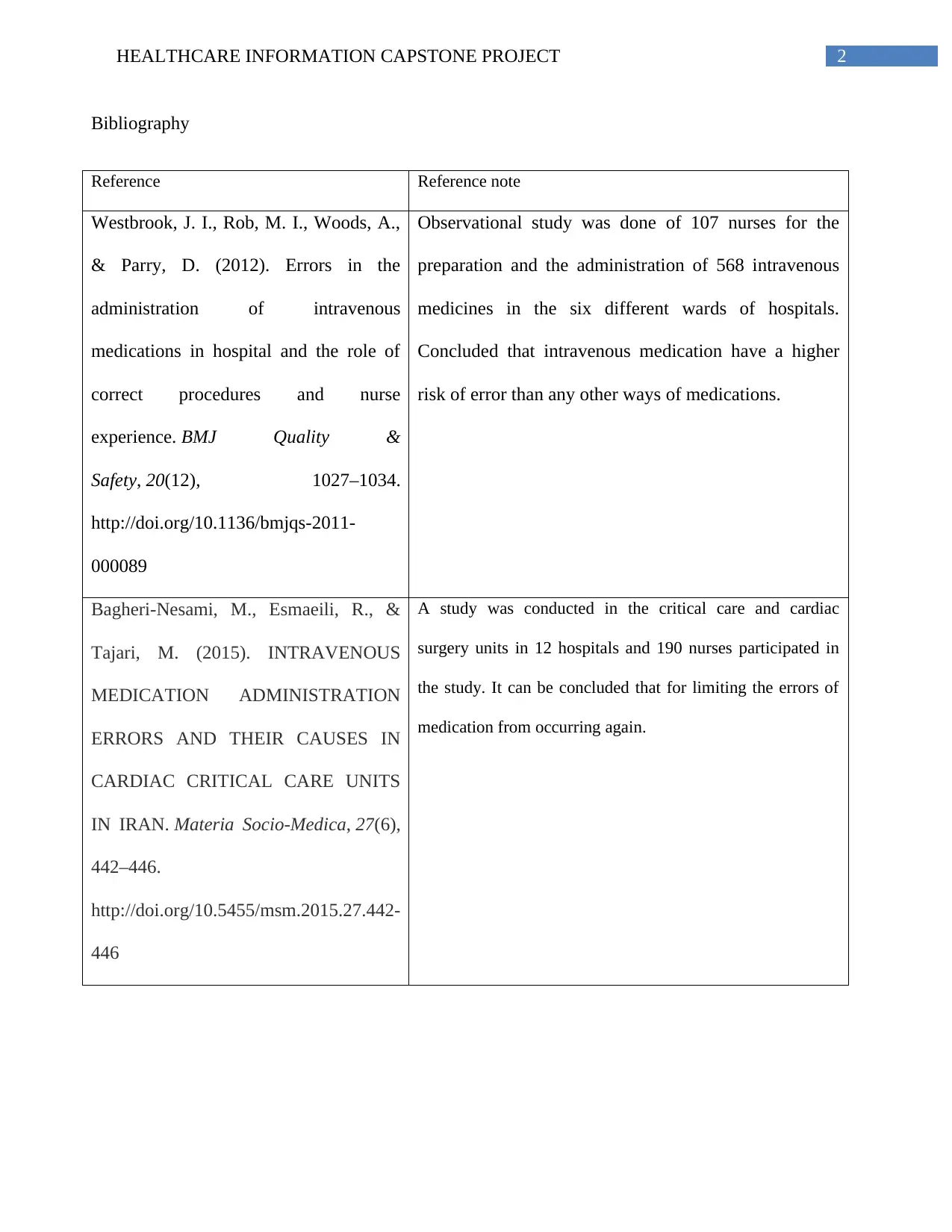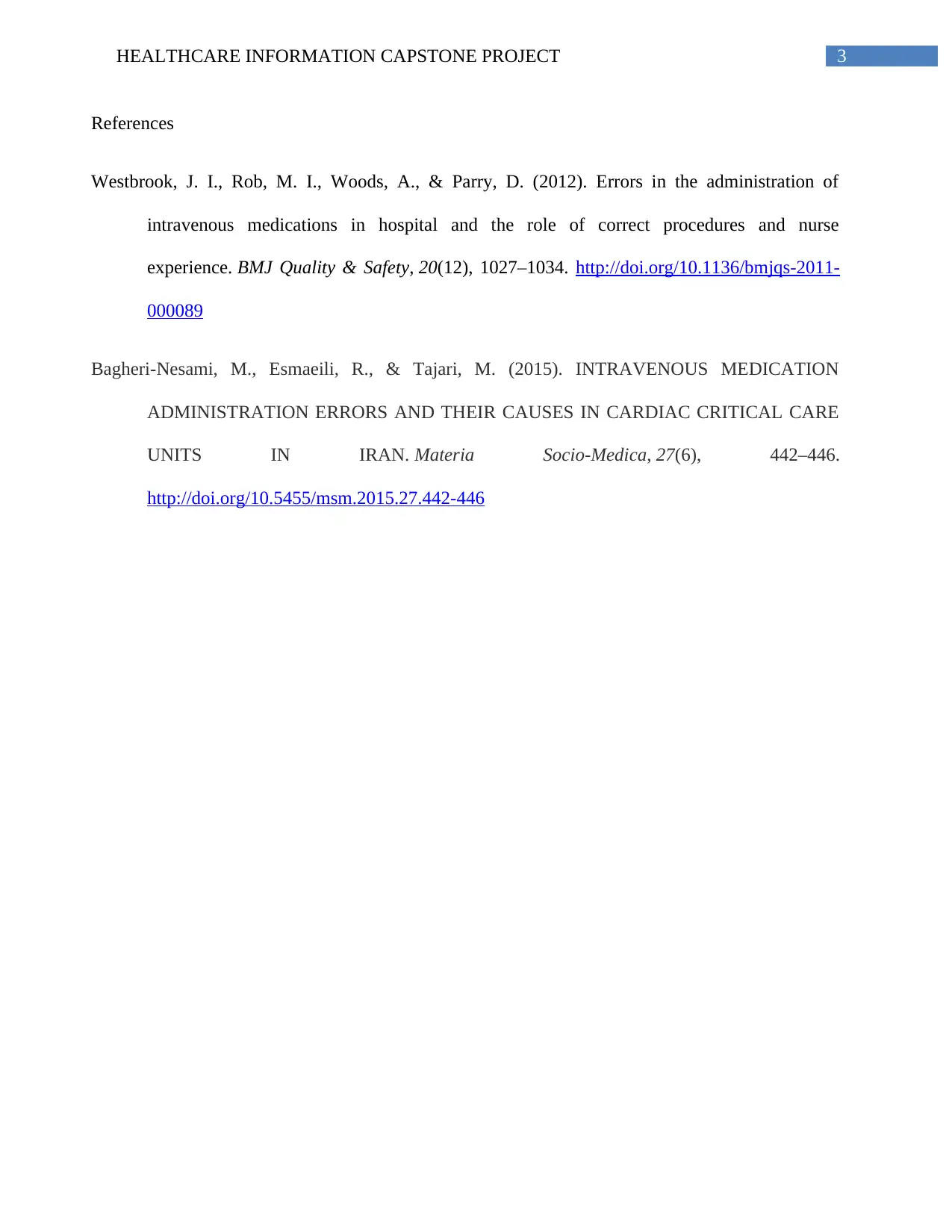Capstone Project: Intravenous Medication Errors in Hospitals
VerifiedAdded on 2020/04/01
|4
|537
|114
Capstone Project
AI Summary
This capstone project investigates the critical issue of intravenous medication dosage errors in heart failure patients within acute care hospital settings. The paper identifies that the frequent use of intravenous medications, while often necessary, can lead to significant errors, including incorrect dosage intervals, improper drug preparation, and misuse of complex equipment. These errors can result in serious complications, including heart failure and even death. The causes of these errors encompass a lack of knowledge in drug preparation, improper administration techniques, and the incompatibility of drug mixtures. The project references studies that highlight the higher risk of errors associated with intravenous medications compared to other methods, emphasizing the need for improved procedures and enhanced nurse training to mitigate these risks. The project draws from two key references to support the findings and conclusions, underscoring the importance of comprehensive knowledge and adherence to best practices in medication administration to ensure patient safety and improve healthcare outcomes.
1 out of 4





![[object Object]](/_next/static/media/star-bottom.7253800d.svg)